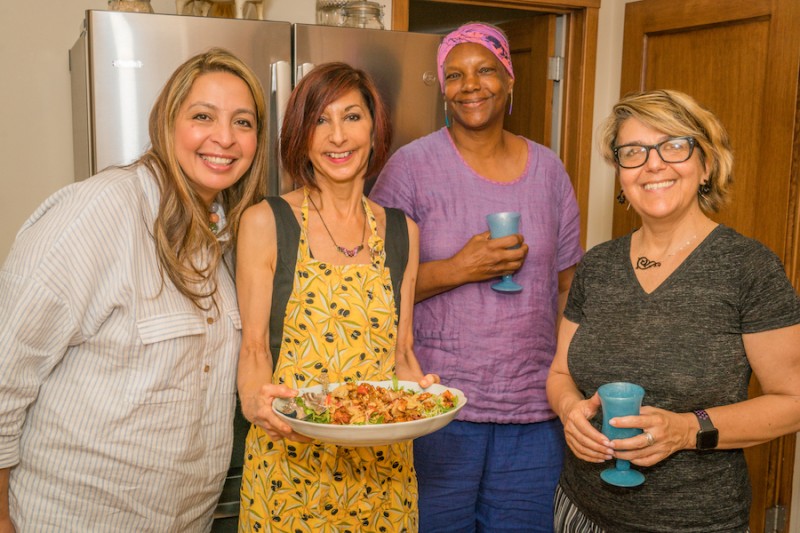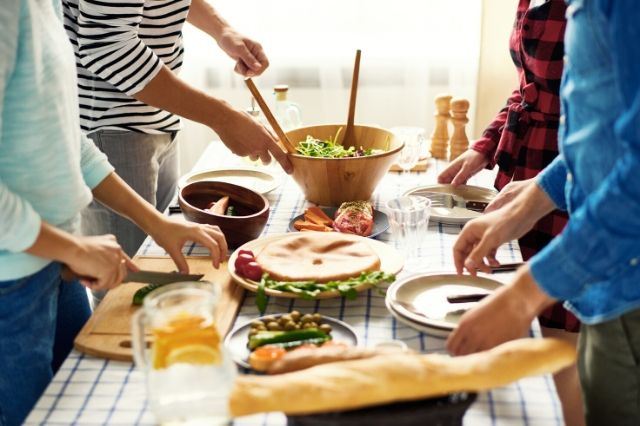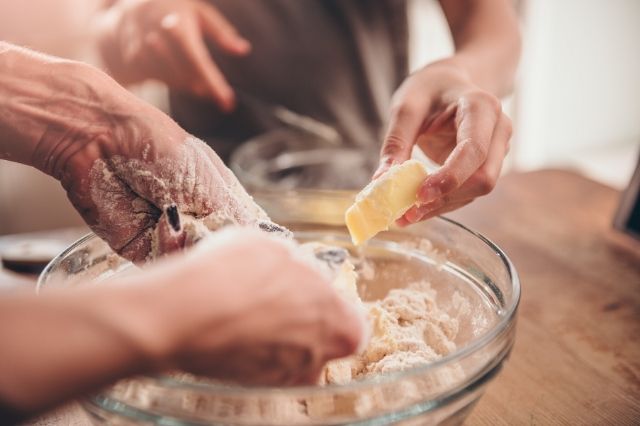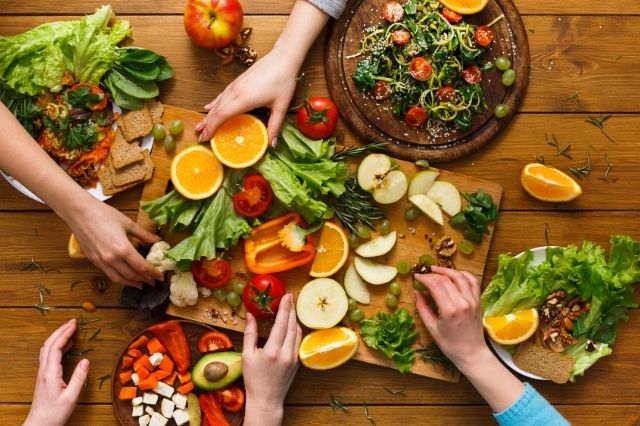Txoco. It’s the Basque term for a private cooking club. They aren’t clubs the way Americans think of clubs. They’re bare-bones communal kitchens where circles of friends gather to cook and eat, talk, drink, and laugh.
America hasn’t really had a txoco equivalent and hasn’t needed one. Until now. Watching online cooking classes and having dinner with friends via Zoom gets us through in the short term, but there will be life after Covid-19, and when it resumes, we have the opportunity to do more, do better. To cook and eat together.

Americans spend less time in the kitchen and at the table than any other nation. And it shows. We’re also at the bottom when it comes to sustainability, but consistently at the top of the list when it comes to obesity, which costs close to $200 billion in annual health care costs. Half of American adults complain of feeling lonely and isolated. And all that was before viral lockdown.
Cooking and eating together is one way to mend that. Google “shared meal,” and you’re directed to over 77,000,000 sites. The act of eating together is primal, powerful, Biblical, even. In perhaps one of the earliest forms of a cooking club, Acts 2:46 notes that people “broke bread in their homes and ate together with glad and sincere hearts.”

But first, that bread has to come from somewhere. As we’re rediscovering, it can’t always come from UberEats. It may need to come from our own ovens. Lockdown has created a frenzy of home baking. Flour and yeast are right up there with toilet paper and hand sanitizer as America’s must-have supermarket items.
We’re discovering the thrill of success and satisfaction a simple home-cooked meal brings. We’ve been hungry to learn the basic cooking techniques that were second nature and common sense just a few generations ago. We’ve been hungry for the daily human interaction we never realized we could lose. It’s time for our own brand of txoco. Let’s call it kitchen collab.
Kitchen Collab
One day a week, think of teaming up in the kitchen with family, friends, neighbors, or all the above. Learn from each other, or learn basic cooking together. State of the art kitchen equipment and elaborate ingredients are not required. Knives existed long before “Chopped.” Bread existed long before automatic bread makers.

Batch cook. Make a pot or two of beans or whole grains, then divide it up, so everyone has some to take home. Try a new recipe, or do basic food prep, and do it together. It’s just as easy to make two dozen muffins as it is one. Baking them at the same time reduces carbon and labor, and then you can break open a few tender, freshly-baked muffins together as a reward. Make each session an aspirational gourmet experience, or just make dinner. Your kitchen collab is yours to flavor as you like.
Not all of us have friends and family close at hand. That’s where community centers, schools, churches, synagogues, and wellness centers can step up, inviting their members to come together for kitchen collabs. People might start out as strangers, but they’ll forge new connections and friendships.

The world holds its breath in this time of social distancing. It feels endless, but it will end, and when it does, kitchen collabs will allow us to exhale, to gather to cook and eat, talk, drink, and laugh. There is real magic and power in cooking and eating together. It makes us better people and allows us to feed ourselves well, too. Kitchen collabs are the medicine we’ll need, and a cooking club we can all belong to.
Recipes to Make at Your First Kitchen Collab Meeting:
Tandoori Vegetables
Veggie Bahji
Tibetan Stew

Leave a Reply